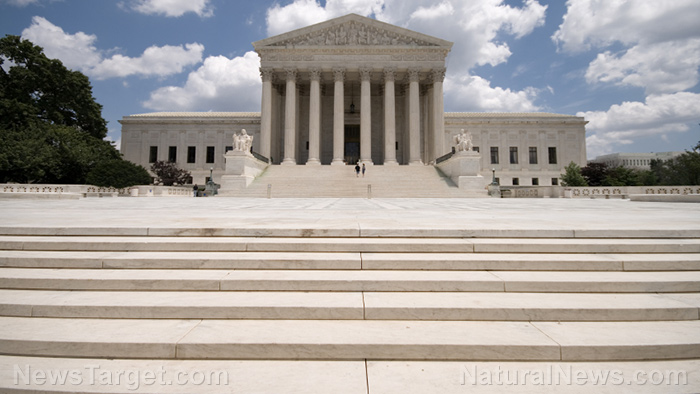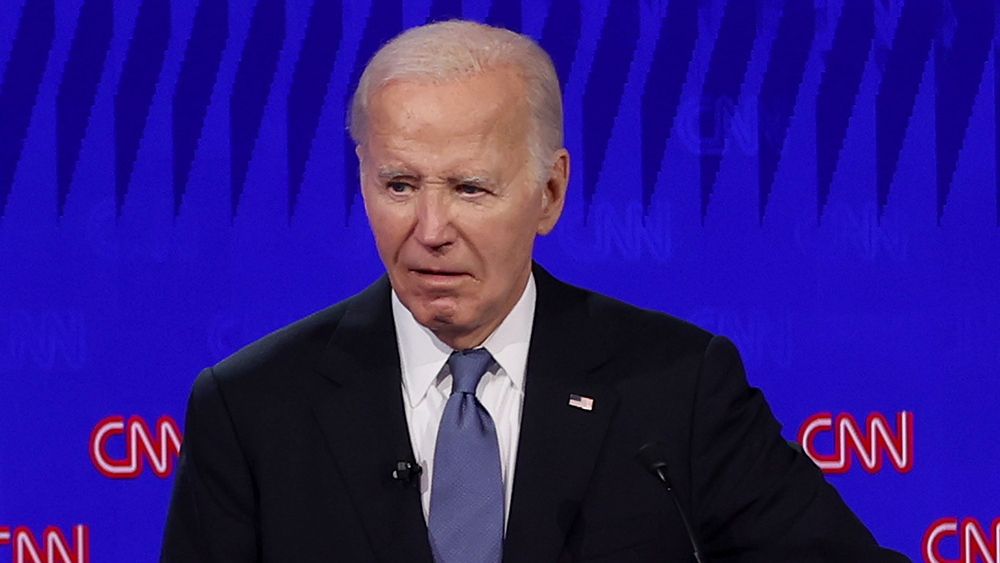 Parler
Parler Gab
Gab
- Only 41% of Americans trust the Supreme Court (per an April 2025 survey), with just 35% expressing "a great deal" or "a lot" of confidence — the lowest in 20 years. Trust in Congress (32%) and the presidency (40%) is similarly weak.
- Despite distrust, over 60% insist presidents must comply with Supreme Court rulings, and 67% reject unilateral judicial appointments. Bipartisan majorities support the judiciary’s role in limiting executive power.
- Accusations of politicization have eroded trust, with only 44% rating justices’ conduct positively (down from 72% in 2006). Legal battles involving Trump and partisan reactions to rulings have fueled skepticism about impartiality.
- Jury participation dropped to 4% in 2025 (from 8% in 2020), weakening public connection to courts. Lower civic literacy and fewer jury trials further isolate citizens from the legal system, undermining trust.
- While 60% believe the U.S. is "off track," most still uphold constitutional principles. However, 55% accuse the Court of political overreach, signaling urgent need for transparency and apolitical reforms.
Institutional trust in free fall, checks and balances unwavering
The Annenberg survey paints a grim picture of eroding institutional credibility. Since 2019, trust in the Supreme Court has dropped 27 percentage points, with trust in Congress (32%) and the presidency (40%) trailing even further behind. Only 35% of respondents expressed “a great deal” or “a lot” of trust in the Court, marking the lowest recorded in the survey’s 20-year history. A staggering 32% said they had no trust at all in the Court, up from 55% to 59% holding either “low” or “no trust” since May 2024. Yet Americans remain fiercely protective of their constitutional framework. Over 60% insist the president must comply with unfavorable Supreme Court rulings — even in hypothetical national security scenarios — and reject unchecked executive authority. “Americans do not think the president should have the ability to act unconstrained by the courts and Congress,” said Matt Levendusky, director of APPC’s Institutions of Democracy division. Two-thirds oppose presidential defiance of court rulings, even among Republicans (27% supported it), while 67% reject unilateral judicial appointments bypassing Senate confirmation. This resolve transcends partisan divides. Majorities across parties endorse the judiciary’s role in deterring abuses of power. “People want the president to listen to the Supreme Court because our system requires it,” explained APPC researcher Shawn Patterson Jr.Accusations of politicization
Trust began a rapid decline amid accusations of politicization. Current evaluations of judicial ethics have cratered as well: only 44% view justices’ conduct as “good” or “very good,” down from 72% in 2006. Recent legal battles involving former President Donald Trump, including his highly publicized New York criminal cases, have intensified scrutiny of the judiciary. A Gallup poll from late 2024, cited in secondary sources, reported a 24-point drop in judicial confidence since 2021, with trust dipping to 35% — punishing Democrats and Republicans for their reactions to rulings. “The decline reflects broad skepticism about justice being served impartially,” said Lilith Foster-Collins of Newsweek.Jury service declines and the civic knowledge gap
The survey also flags a dangerous disconnect between the public and the legal system. Fewer citizens engage with courts as jury participation plummets: only 4% of Americans have served on juries so far in 2025 (of 35% called), down from 8% in 2020. This dwindling interaction weakens trust. “Understanding courts fosters respect,” explained APPC director Kathleen Hall Jamieson, noting that jury duty correlates with higher perceived legitimacy of the judiciary. Declining civic literacy compounds the issue. The Annenberg team’s annual Constitution Day surveys repeatedly link deeper legal knowledge to stronger support for judicial legitimacy. Yet, systematic shifts like fewer jury trials (down 67% in state courts from 2007 to 2021) exacerbate isolation from the legal process.Preserving ideals amid division
The data present a dual imperative. While 60% believe the nation is “seriously off track,” majorities still affirm foundational democratic principles. Even Republicans remain averse to dismantling check-and-balance mechanisms: only 28% favor removing Supreme Court justices over unpopular rulings. “The American public recognizes the Court’s vital role, even as its integrity comes into question,” noted Jamieson. However, the stakes extend beyond public opinion. A politicized judiciary risks legal crisis. Over half (55%) now argue the Court “overstepped into politics,” and nearly 60% demand reduced influence over controversial issues. “Trust isn’t something we can take for granted,” said Patterson. “Without it, courts lose their moral authority to govern.”Nation at a crossroads
The Annenberg findings reveal a nation at a crossroads. Americans, though skeptical of individual institutions, cling to constitutional ideals as a bulwark against chaos. Yet, sustained distrust could unravel that social contract. “Courts need civic firepower — the engagement and knowledge of citizens — to fulfill their role,” Jamieson warned. As the U.S. faces legal and political challenges, from election integrity debates to high-stakes judicial appointments, rebuilding trust demands transparency and reaffirming the judiciary’s apolitical mission. The republic’s longevity hinges on bridging the gap between declining institutional confidence and the enduring belief in checks and balances — a struggle where historical principles may yet prove both stabilizer and scoreboard. Sources include: StudyFinds.org Annenbergpublicpolicycenter.org Newsweek.comIsraeli government faces fury over wildfire failures amid Gaza war distractions
By Cassie B. // Share
The enduring mystery of a sacred relic: Graham Hancock’s “The Sign and the Seal”
By Kevin Hughes // Share
Axios clown claims media “missed” Biden’s mental decline
By News Editors // Share
50 years on, Washington has learned nothing from defeat in Vietnam
By News Editors // Share
Governments continue to obscure COVID-19 vaccine data amid rising concerns over excess deaths
By patricklewis // Share
Tech giant Microsoft backs EXTINCTION with its support of carbon capture programs
By ramontomeydw // Share
Germany to resume arms exports to Israel despite repeated ceasefire violations
By isabelle // Share










